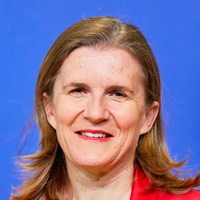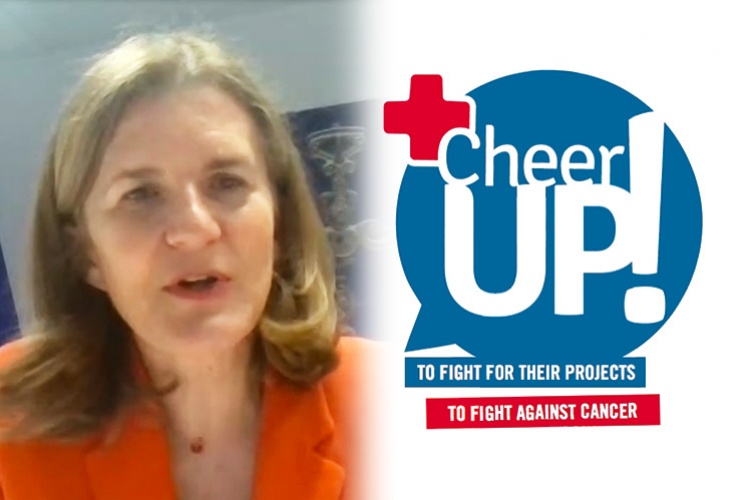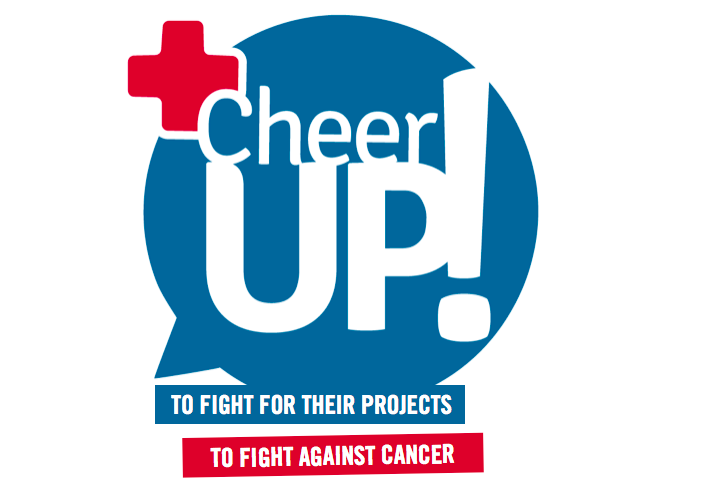CheerUp London ESCP Society Engages in Europe’s Beating Cancer Action Plan
On Thursday, 11th March 2021, CheerUp London, a cross-campus student society of ESCP Business School, organised a conference with guest speaker, Isabelle Fabre, Head of Cabinet of Commissioner Didier Reynders at the European Commission, to discuss Europe’s Beating Cancer Action Plan.
The moderators were Juliette Perignon and Celeste Mastria, Co-presidents of CheerUp London.
Europe’s Beating Cancer Plan was launched in February 2021 by Ursula von der Leyen, and its impacts are already visible. It has been developed through four key action areas and ten flagship initiatives, which were further explained and discussed during the conference:
The four key action areas:
- Prevention: reduce risk factors such as smoking, alcohol consumption, environmental pollution and use of hazardous substances.
- Early detection: facilitate access to healthcare, and improve the quality and timeliness of diagnostic activities.
- Diagnosis and treatment: ensure better integrated cancer care and address unequal access to quality care and medicines across Member States.
- Improving the quality of life of cancer patients and survivors: rehabilitation, tumour recurrence, metastatic disease, and ways to support social integration and re-integration in the workplace.
The ten flagship initiatives:
- Knowledge Centre on Cancer
- European Cancer Imaging Initiative
- Elimination of cervical cancer and other cancers caused by human papillomaviruses through vaccination
- EU-supported Cancer Screening Scheme
- EU Network linking recognised National Comprehensive Cancer Centres
- Cancer Diagnostic and Treatment for All Initiative
- European Initiative to Understand Cancer (UNCAN.eu)
- Better Life for Cancer Patients Initiative
- Cancer Inequalities Registry
- Helping Children with Cancer Initiative
The plan aims at establishing, by 2025, an EU network accessible to every Member State, to reduce inequalities that exist across countries.
The Better Life for Cancer Patients Initiative will focus on reducing recidivism through personalised plans. Artificial Intelligence is a largely powerful tool in diagnosis because it decreases the probability of false positives and negatives.
The Plan is inclusive, not only because it has different stakeholders and partners but also because it is international: The European Parliament cooperates on this project with the World Health Organisation and the Organisation for Economic Cooperation and Development.
 Isabelle Fabre, the guest speaker, shared, “I enjoyed this discussion with ESCP students active in the CheerUp association. Dedicating their time to a charity is remarkable and is a piece of the larger puzzle that the European Commission tries to put in place with the implementation of Europe’s Beating Cancer Plan adopted last month”.
Isabelle Fabre, the guest speaker, shared, “I enjoyed this discussion with ESCP students active in the CheerUp association. Dedicating their time to a charity is remarkable and is a piece of the larger puzzle that the European Commission tries to put in place with the implementation of Europe’s Beating Cancer Plan adopted last month”.
 Alix de Poulpiquet du Halgouët, a participant at the conference, said, "This event was very engaging with a lot of interesting aspects. I have learned more about the role of the European Commission".
Alix de Poulpiquet du Halgouët, a participant at the conference, said, "This event was very engaging with a lot of interesting aspects. I have learned more about the role of the European Commission".
 Juliette Perignon, Co-president of CheerUp London, summarised, "The event went smoothly, the participants were engaged and interested. I am happy they learnt something about the cancer plan and I learnt a lot of new things myself".
Juliette Perignon, Co-president of CheerUp London, summarised, "The event went smoothly, the participants were engaged and interested. I am happy they learnt something about the cancer plan and I learnt a lot of new things myself".
Campuses

